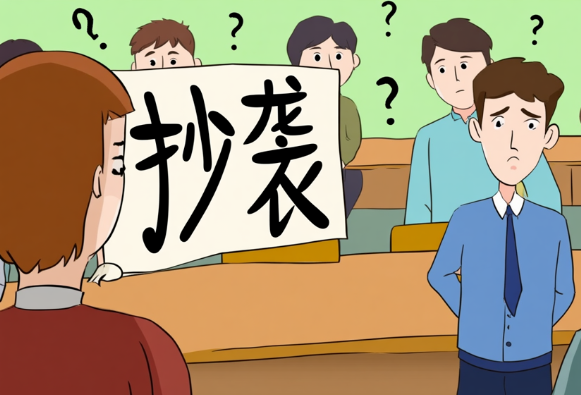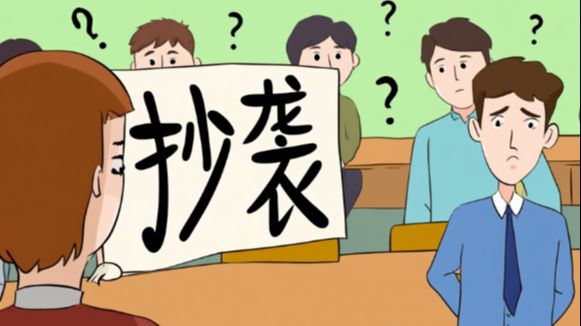In the educational scenario, there is a heartbreaking phenomenon: students who have been labeled as "poor students" for a long time have made significant progress through their own efforts, but have encountered trust doubts for breaking the rules and are accused of plagiarism and cheating. This distrust not only negates the students' efforts, but also causes a devastating blow to their psychological world. When the teacher asked to write a review letter to admit plagiarism, he signed not only a false confession, but also a complete denial of self-worth and the significance of his efforts. Behind this incident, we reflect multiple psychological mechanisms such as stereotype threats, self-fulfilling prophecies, trust trauma, and identity crisis in educational evaluation, which require us to conduct in-depth and systematic psychological analysis.

1. The psychological shackles of stereotype threats and poor student labels
The label "poor student" is by no means a neutral description, but a powerful psychosocial construction, which profoundly affects the psychology and behavior of the labeled person through the stereotype threat mechanism.
Internalization and self-realization prophecy of labels: When students are repeatedly identified as "poor students", this external evaluation will gradually be internalized into self-cognition, forming a self-concept of "I am not good at learning". According to the theory of self-fulfilling prophecy, individuals tend to unconsciously adapt their behavior to the expectations of others. Students who are expected to perform poorly often end up being poor, not only because of lower motivation, but also because cognitive resources are occupied by anxiety.
The cognitive cost of stereotype threat: Individuals in negative stereotypes need to consume additional psychological energy to manage anxiety and suppress negative thoughts. The consumption of these cognitive resources directly damages their performance on academic tasks. This means that the "poor students" may not be lacking in ability, but are carrying heavy psychological burdens.
Uncertainty of sense of belonging: Negative stereotypes in the academic field can also trigger a sense of belonging uncertainty - an individual doubts whether they truly belong to the academic environment. This uncertainty further weakens the motivation and level of investment in learning, forming a vicious cycle.
2. Strive and breakthrough: Motivational transformation from the perspective of self-determinism
The ability of poor students to "make up their minds privately" and make efforts is already an important psychological breakthrough in itself, and it needs to understand its significance from the perspective of motivational psychology.
Awakening of Autonomy: According to the theory of self-determination, when learning motivation shifts from external regulation (learning for parents and teachers) to internal regulation (learning for themselves), individuals will experience greater autonomy and willpower. The student's "secret determination" shows that he has begun to regard learning as his choice, which is an important psychological growth.
The pursuit of a sense of ability: Humans have basic needs to experience themselves. Poor students are in a state of impaired ability for a long time, and striving to make progress is an important attempt to rebuild this sense of ability. A successful experience is essential to maintaining motivation.
Contradictions in relationship needs: Behind students’ hard-working learning, it may also contain the desire to establish better relationships with teachers and classmates - gaining more recognition and acceptance by changing the identity of poor students.
3. The collapse of trust: Teachers question the cognitive bias behind the problem
Teachers’ credible doubts about students’ progress reflect various cognitive biases and the lack of educational concepts.
Representative heuristic bias: People often judge the possibility based on the similarity between things and prototypes. In the teacher's mind, the "poor student" prototype is extremely mismatched with the script of "suddenly achieving good grades", so he prefers to use "plagiarism", an explanation that is more in line with the cognitive schema.
Reinforcement of confirmation bias: Once a preliminary hypothesis that “may be plagiarism” is formed, teachers unconsciously seek evidence supporting this hypothesis (such as poor past grades) and ignore evidence to the contrary (such as signs of recent efforts by students).
Limitations of fixed thinking mode: Teachers who hold fixed thinking mode believe that abilities are inherently fixed and difficult to change. Therefore, the sudden progress of poor students can only be achieved through improper means in their eyes. Teachers with growth thinking patterns will think that progress is possible and will first consider the factors of students' efforts.
Misuse of power and authority: The act of requiring the writing of a review letter reflects the improper use of power in educational relations. Teachers use institutional power to force students to accept their own judgments, denying students' voices and subjectivity.
4. Psychological Destruction: The Trauma Mechanism Behind Self-Defeat
Denied by witnesses (teachers) of their own efforts, this traumatic experience is multiple and profound, which directly leads to students' self-abandonment.
The formation of a sense of ineffectiveness of effort: Psychological research has found that learnt helplessness is formed when an individual believes that effort has nothing to do with the outcome (no effort can change the outcome) is impossible. Teachers’ doubts convey this message: Even if you work hard, you will not be recognized and the results will not change.
The double blow of self-concept: The student originally started to construct a new self-concept of "I am a competent learner" through hard work, while the teacher's questioning also negates his ability and character (defining him as a cheater), and this double blow leads to the confusion and collapse of self-concept.
Experience of relationship trauma: An educational relationship is essentially a relationship of trust. When teachers—the important others in the student’s mind—demonstrates distrust, it is a relationship trauma. This trauma can generalize to other learning relationships, making it difficult for students to trust the educational environment anymore.
The humiliation of moral self: Being accused of plagiarism is not only a denial of academics, but also a humiliation of moral personality. When an individual feels that his moral value is denied, a deep sense of shame is created, and this emotional experience often leads to retreat or abandonment.
The collapse of the meaning system: The efforts of students have originally given new meaning to their actions (through hard work, they can change their destiny), and the teacher's doubts completely collapse this meaning system, leading to existential despair - efforts no longer have any meaning.
5. Educational reflection: Building a learning environment for trust and growth
To avoid similar tragedies, the education system needs profound reflection and change.
Establishment of a growth-based evaluation system: Educational evaluation should focus on progress and growth, not just the final result. Create a growth file bag and record the learning process rather than exam results.
Teachers’ awareness of cognitive biases: Teachers need to receive cognitive psychology training, be aware of various cognitive biases that they may have, and take a more open and diverse perspective when evaluating students.
Deliberate construction of trust relationship: educators should realize that trust is the basic relationship of education. This trust needs to be constructed and maintained through respect, listening and sincere communication.
The courage to admit mistakes and relationship repair: When teachers realize that they may misjudgment, they should have the courage to admit mistakes and perform relationship repairs. This demonstration itself has important educational value.
Respect and amplification of student voices: Create mechanisms to ensure that students can tell their own stories and explain their progress, rather than passively accepting the teacher’s unilateral judgment.
Conclusion
The student who was asked to write a false review letter and finally gave up on himself, his story is not only a case of misjudgment by individual teachers, but also a question to the entire education system: Do we really believe that every student has the possibility of growth? Are we willing to give the trust and respect that every changer deserves?
The deepest essence of education is not the transmission of knowledge, but the establishment of trust; it is not the imposition of judgment, but the granting of hope. When a student mustered up all the courage to embark on the path of change, the most sacred duty of an educator is not doubt and questioning, but accompanying forward with a gaze of surprise and appreciation, even if the pace of progress is unexpected. Because the ultimate truth of education is that trust often creates more trustworthy people than doubt, and hope often produces more hopeful lives than judgment.
The student who finally gave up on himself not only his studies, but also his last trust in the adult world. Rebuilding this trust requires each of us educators to start by changing our cognition and attitude, and truly believe that every upward heart is worthy of being gentle; every silent effort should be seen and respected. Only in this way can education become a real project of hope, not a place of destruction.
